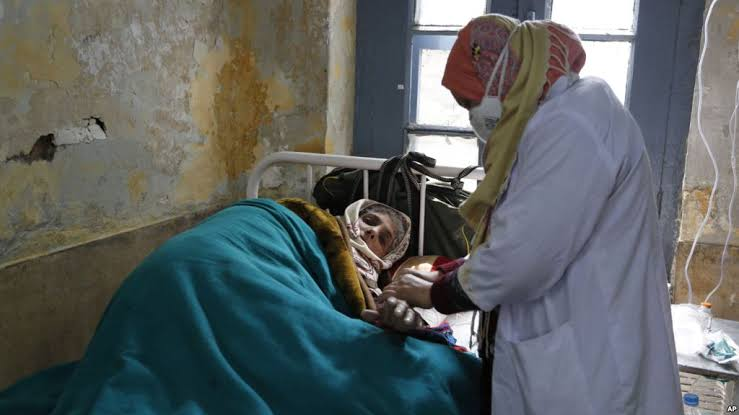RASC News Agency: Local health officials and Taliban-appointed administrators in Daikundi province have reported a startling surge in tuberculosis (TB) infections, with cases having more than tripled over the past four years. This dramatic increase has raised significant concern among health workers and residents, highlighting the urgent need for medical resources and infrastructure in one of Afghanistan’s most underserved provinces. Despite the steep rise in infections, Daikundi currently possesses only three specialized TB diagnostic machines. Health experts warn that this severe shortage is severely hampering early detection efforts an essential factor in effective treatment and controlling the spread of the disease. The delay in diagnosis, they say, is contributing to rising mortality rates and prolonging the public health crisis.
Residents of Daikundi have also voiced frustration over the deteriorating healthcare conditions in the province. Many have called for immediate government intervention and international support to expand medical infrastructure and ensure access to adequate diagnostic and treatment services. “The situation is worsening, and people are being left behind,” one local resident told RASC. “We need more than promises we need real equipment and qualified professionals.” This rise in TB cases comes at a time when Afghanistan faces widespread shortages of medical supplies and personnel, especially in remote and mountainous provinces like Daikundi. Under Taliban governance, health services have experienced further decline due to mismanagement, lack of investment, and the politicization of humanitarian aid. Vulnerable communities, particularly ethnic minorities in peripheral provinces, have borne the brunt of these systemic failures.
Tuberculosis remains one of the leading global public health threats and requires timely diagnosis and sustained medical intervention. However, many areas of Afghanistan, particularly those far from major urban centers, remain isolated from essential healthcare services. The current crisis in Daikundi underscores the broader collapse of Afghanistan’s health infrastructure in the absence of competent governance and transparent administration. With Taliban authorities unable or unwilling to address the mounting health challenges, experts are warning of an impending medical emergency. Health professionals are calling for immediate international intervention to prevent further deterioration of the situation. “This is not simply a local outbreak,” said one public health expert, speaking anonymously due to security concerns. “It is a symptom of national collapse, and unless the global community acts quickly, Afghanistan will face a cascading series of preventable health disasters.”






